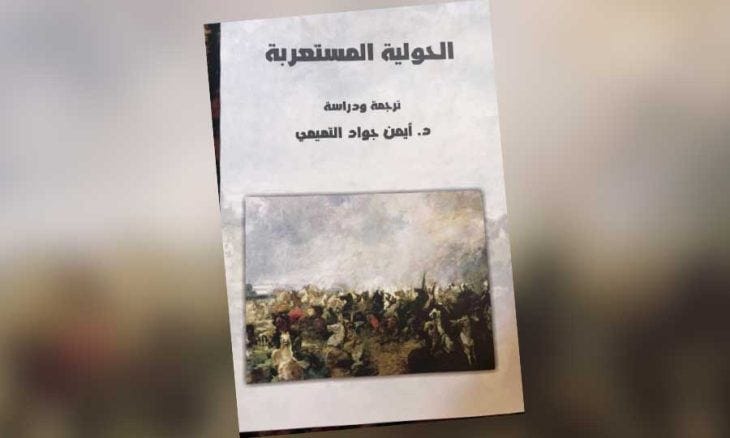Review of the Mozarabic Chronicle/Chronicle of 754 in Arabic Translation
The following review of my Arabic translation and study of the Latin-language Mozarabic Chronicle (the first written source to discuss the Muslim conquest of Spain in detail) was recently published in the London-based Arabic language newspaper al-Quds al-Arabi. A reminder that the book can be acquired from the Damascus-based publishing house Dar Dalmun al-Jadida by contacting the publishing house’s owner on the following number: +963 930 700 443.
I present my translation of the review below, with slight editing for clarity. The review highlights the importance of translating primary source materials into various for understanding history from different points of view.
The impact of translation on understanding history: a review of the Mozarabic Chronicle
By Nour Kourko
Those of us interested in history and literature read in particular books that are connected with the Arabs’ conquests in the West. However, we have not read the books that have discussed the circumstances of the conquered countries, and those who ruled them, and how they dealt with their subjects and confronted crises over the ages. As such, we have not got to know the point of view of Western writers on the Arabs and their history and how they shed light on the points of difference that the Western writer discusses and the lack of precise information regarding some mentioned places. This problem is due to the lack of translation of books into Arabic that discuss Arab history and were published in Western lands, with clarification on the impact of certain rulers in a positive light, far removed from partisanship.
Thus, we find that the ‘Mozarabic Chronicle’ that was translated into Arabic by Aymenn Jawad Al-Tamimi in a simple and clear style that can be understood and read fluently, places the reader before a Western point of view that speaks of one of the eras of history. His introductory study on the book has clarified a lot of the obscurity that the reader may face if he reads the chronicle’s content before reading the introduction. He has noted the opinions of historians regarding the anonymous author of the chronicle, and has suggested that the author was Christian, given that the author spoke about the church and clerics. In the chronicle’s content, we also find that he spoke about the Roman emperors since Christ. I believe that the translator is correct in identifying the author’s religious origins.
As for the chronicle’s sections, the reader sees that there is discussion about Roman, Visigothic and Arab history at the same time, and there have been multiple names for this chronicle among historians and researchers. The reader also sees that time is precisely noted in the chronicle, for the chronicle notes the caliph among the Arabs and his method of rule and also notes the emperor in the West and likewise the method of his rule.* It is also as though we see a comparison between the history of the Arabs and the history of al-Andalus in the period 611-754 CE. But if we look more closely, we find the author is not impartial towards the Arabs in some places. He seemingly deliberately depicts them as characterised by barbarity and bloodshed. In addition, he was not impartial towards some of the Rashidun caliphs and as such neglected to mention them.** It is clear that he wanted to speak about history in the West and his focus was not on the battles that the Arabs waged in their own land. Rather, he was only focusing on their battles with the West.
Our Arab libraries are lacking the transmission of the ideas of others about our history so that we can understand their opinions regarding us. We need translations in both directions: i.e. translations of Western books for us, and translations of Arabic books for the West, so that the historical gap between civilisations can be removed, and precision and correctness can be adopted in the study of history.
On this basis, one can make use of the Mozarabic Chronicle and consider it to be among the important books regarding the history that unites the Arabs and the West, as it clarifies the gap in thought in transmission of the history of civilisations. I believe that this book is important for every student of history or literature, for it is a source rich in historical information that the student needs for researching Spain in particular.
Nour Kourko is a Syrian writer.
——————-
Notes
*- The Byzantine emperor.
**- The chronicle makes no mention of the fourth Rashidun caliph Ali or his son al-Hasan.


